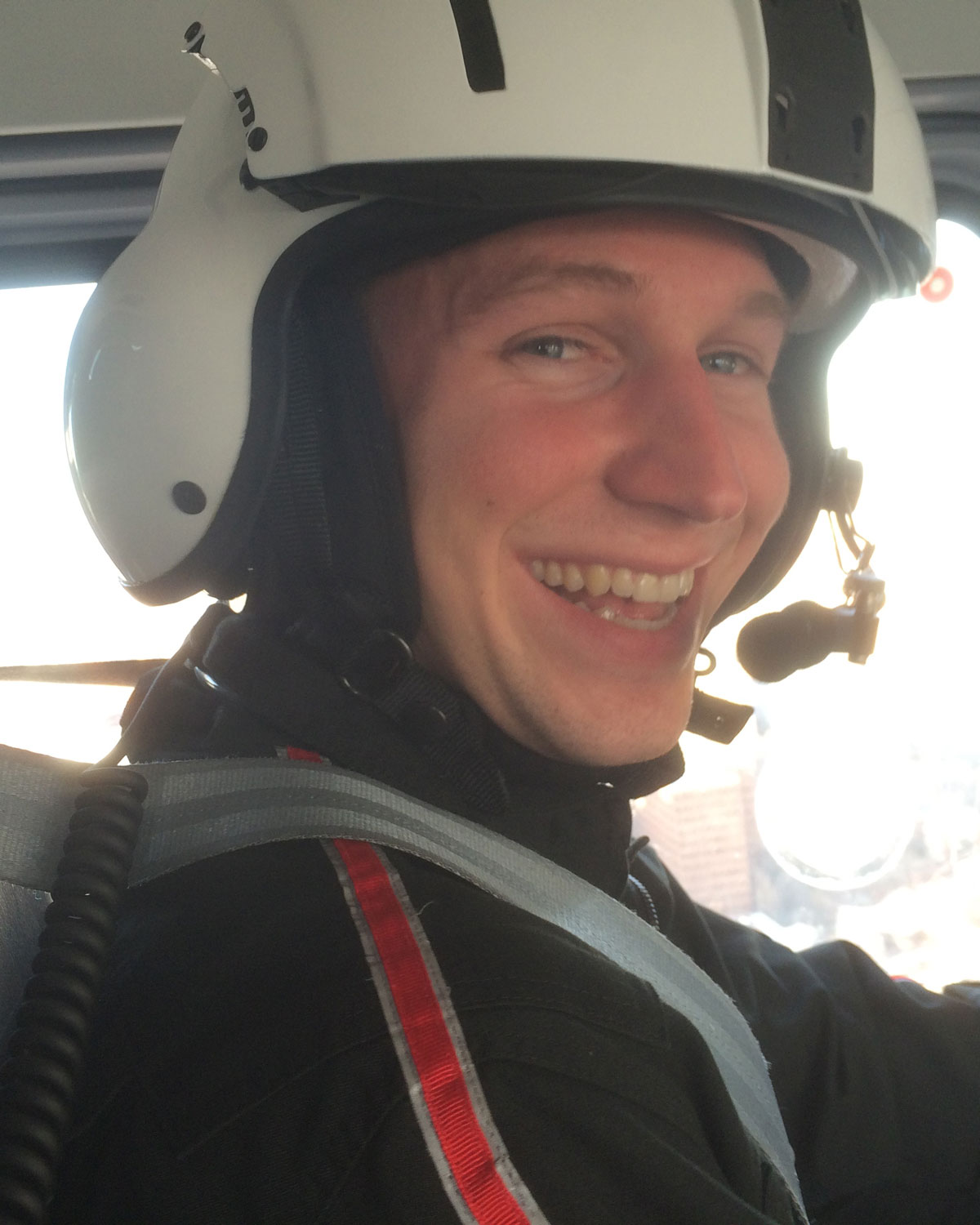Alexander Prewitt
DO '17

Alexander Prewitt (DO ’17)
Alexander Prewitt got his first taste of saving someone’s life in high school. While
volunteering in an emergency room, he encountered a patient in cardiac arrest. The
charge nurse, familiar with Mr. Prewitt’s background as a lifeguard certified in cardiopulmonary
resuscitation, or CPR, asked him to start chest compressions.
“I was terrified, but I went ahead and started doing compressions,” he said. “The
patient ended up getting her pulse back a few minutes later. Knowing that I had played
a part in saving this patient’s life was the best feeling ever--after that, I was
hooked.”
Mr. Prewitt went on to become an emergency medical technician (EMT) during his time
as an undergraduate at Loyola University Maryland, where he also volunteered in the
R. Adams Cowley Shock Trauma Unit. He says the adrenaline of emergency medicine has
always appealed to him, but also, “no patient is ever turned away from the emergency
department.
“Emergency medicine is about working as part of a team to care for each and every
person, regardless of race, gender, age, color or creed, [and] on what is likely one
of the worst days of their life,” said Mr. Prewitt. “That’s the kind of place I want
to work in.” He will go on to an emergency medicine residency at the University of
Illinois in Chicago.
That passion for emergency medicine was one of the reasons he decided to come to PCOM
as well. “I had shadowed a few emergency doctors during college, and I happened to
shadow one who was a DO,” Mr. Prewitt explained. “The way she cared for her patients
blew me away. I came to PCOM because I really liked the philosophy of caring for the
whole patient, not just treating their disease.” He added that the school’s reputation
among other doctors with whom he worked was another deciding factor.
During his time at PCOM, Mr. Prewitt has been very active with the Emergency Medicine
(EMed) Club, of which he served as president. He says the excitement of EMed Club
founder and past president Rick Pescatore, DO ’14, and of Anthony Moon, DO ’16—another
past president—“helped inspire me to make the club even better, and they wanted to
help us succeed at that,” said Mr. Prewitt. “That enthusiasm is contagious, and it’s
what makes the EMed club so much fun.”
As president, Mr. Prewitt launched the weekly EM Sim Lab, an outlet through which
students can learn evidence-based medicine, clinical skills, and translate their lectures
into a clinical setting. Since its inception, the EM Sim Lab program has more than
tripled in size, and frequently runs complex simulations in the Saltzburg Clinical
Learning and Assessment Center (CLAC). He credits the CLAC staff—in particular Martin
Robinson, the medical simulation technician—for helping the program to grow.
“I’m excited to come back at some point during or after residency and see how [the
program] has grown,” he says.
Mr. Prewitt’s passion for working as a team, treating others “regardless of race,
gender, age, color or creed,” inspired a kind of global view of health care. He has
traveled through Costa Rica, Nicaragua, Belize and most recently, Peru, working with
local doctors and public health workers to set up small field clinics in areas where
residents desperately needed care.
“Some of them were pretty sick, but everyone waited patiently in line at the clinics,
just laughing and making jokes with each other,” he said. “They were such pleasant
people–it was humbling and inspiring to see how happy they all were despite how difficult
their daily lives must have been.”
Mr. Prewitt says that he hopes his experiences can help his patients here in the U.S.
“Every time I took care of a patient in the ambulance or emergency department who
only spoke Spanish, I always thought about how scary it must be to be sick and not
speak the same language as the doctor,” he said. So, while in Peru, he spent his mornings
working at a local hospital, and his afternoons strengthening his Spanish skills.
“I really want to be able to prevent that added unnecessary fear for my patients.”

